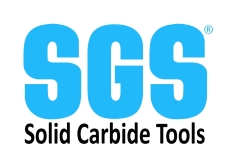KYOCERA SGS Precision Tools, Inc., formerly known as the SGS Tool Company and a wholly-owned subsidiary of KYOCERA Corporation, was originally founded in 1951 and is an ISO-certified leader of round solid carbide cutting tool technology for the aerospace, metalworking, and automotive industries. Today, it is best known for its solid carbide high performance end mills and drills. However, it is also well known for its stainless steel medical tools and technically advanced, proprietary PVD coatings. KYOCERA SGS Precision Tools, with manufacturing sites in the United States and United Kingdom, aggressively services its customers through a global network of Sales Representatives, Industrial Distributors, and Agents that sell into more than 60 countries.
Manufacturers supplying the intricate parts needed for the auto industry’s ramp-up of electric vehicle production are clamoring for specialized cutting tools that deliver larger quantities of Swiss-machined products than ever before, and on a tight timetable. That kind of challenge doesn’t faze Kyocera’s EZ-Bar.
Precise and easily adjustable, the microbar system is built to handle tasks from boring to internal profiling, small-diameter grooving and small-diameter face grooving, according to engineers with the Japanese conglomerate’s precision tools group.
While the EZ-Bar and other microbar systems are used in industries from medical equipment to aerospace, demand for such innovations has been especially keen in the rapidly transforming automotive industry.
The electric vehicles powering onto 21st century highways have structural and mechanical needs that are dramatically different from those of automobiles powered by internal combustion engines that dominated the market for well over a century.










Talk to Us!
Leave a reply
Your email address will not be published. Required fields are marked *